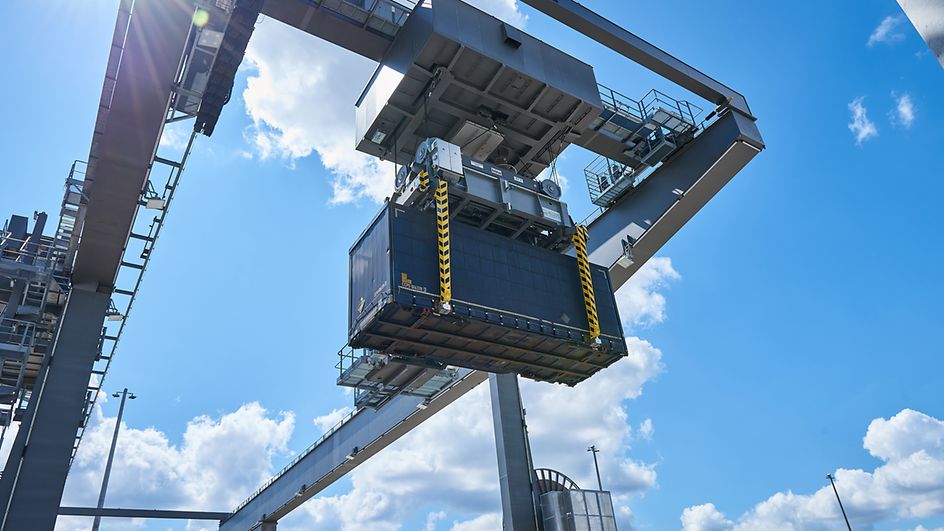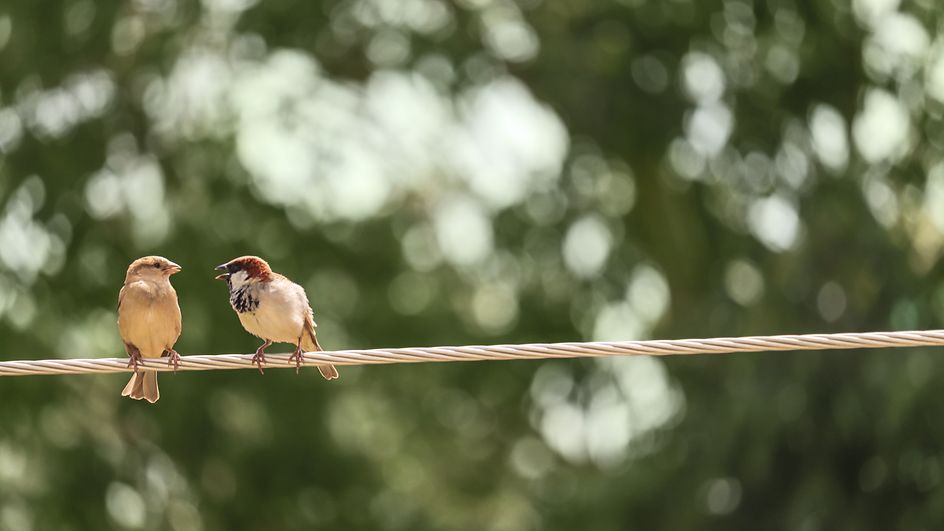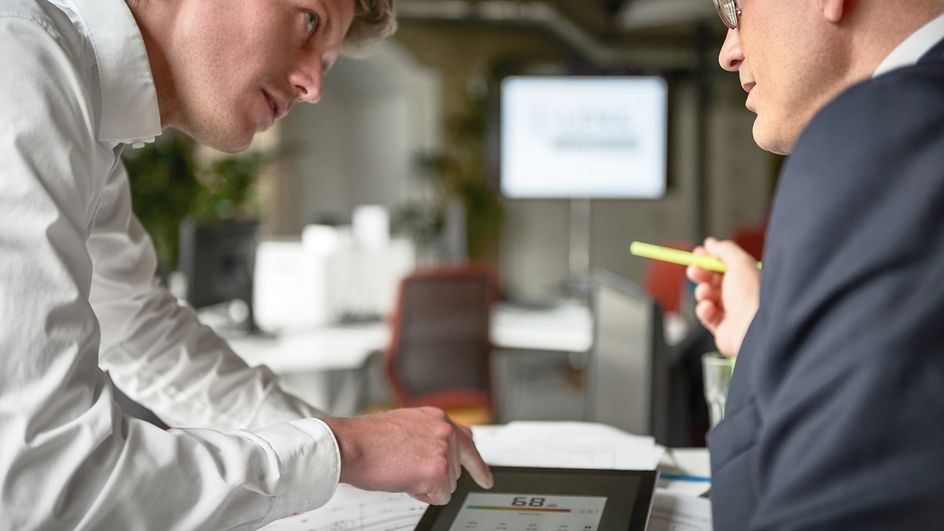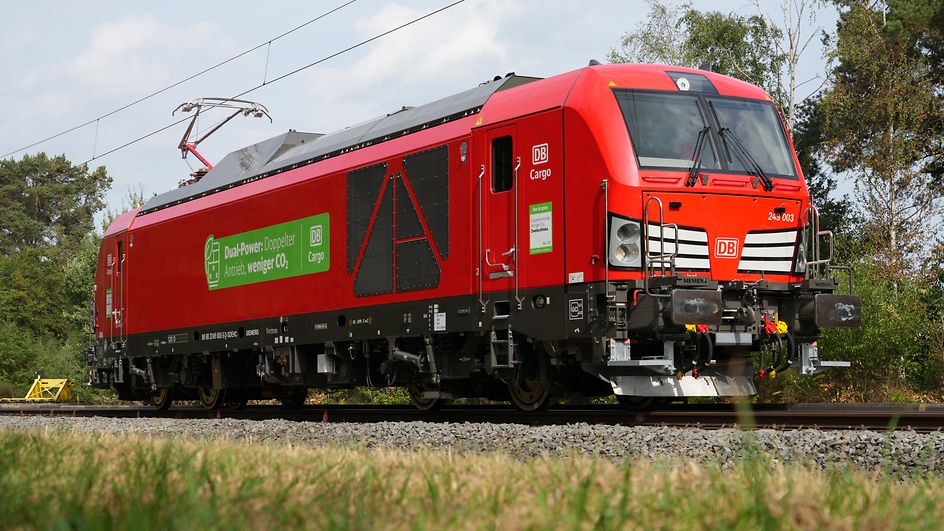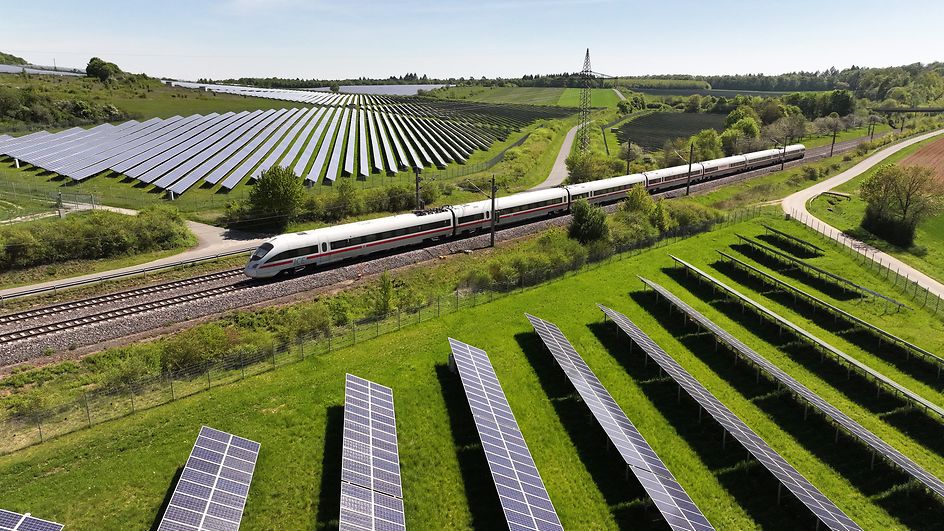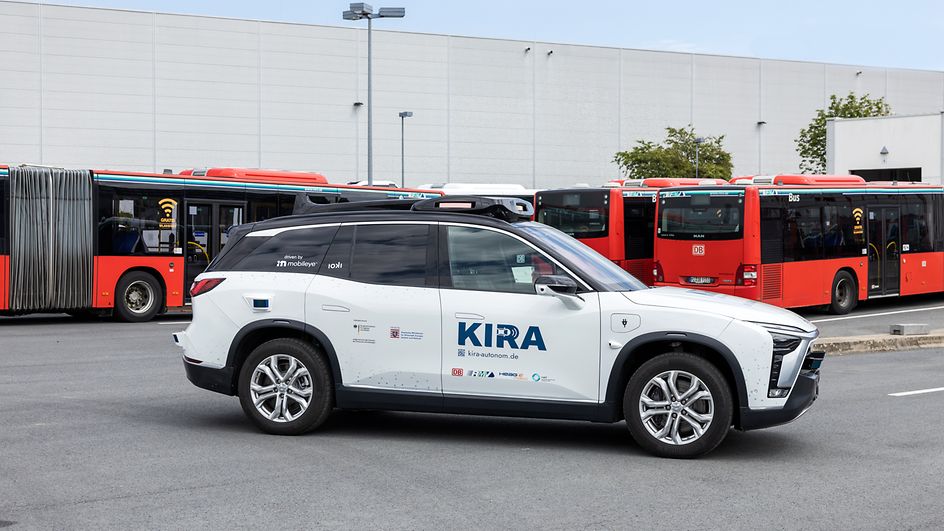Deutsche Bahn aims to be climate neutral by 2040 and reduce its greenhouse gas emissions across the entire value chain to net zero. To achieve this, DB is working on innovative solutions for alternative drives to phase out diesel operations. One example is the use of modern battery trains.
Full power without overhead lines
So-called battery trains (BEMU = Battery Electric Multiple Units) make climate-friendly travel possible even on routes without continuous overhead lines. The electric multiple units are equipped with an accumulator or so-called rechargeable battery. On electrified sections, the batteries are charged via the pantograph, enabling onward travel on non-electrified lines where, until now, only diesel vehicles could operate. Powered by renewable power, the new trains can run locally emission-free.
Islands for charging
To ensure battery trains always have enough energy on longer routes, Deutsche Bahn provides the necessary charging infrastructure and power supply with so-called overhead line islands. These are installed where recharging is required but no overhead line exists. This allows the train to recharge its battery while running. Charging is also possible at stationary facilities, such as depots. DB Energie, together with DB InfraGO, designs, builds and operates this recharging infrastructure.
Charging islands in Schleswig-Holstein
In Schleswig-Holstein, DB InfraGO and DB Energie, commissioned by the state, have completed the supply infrastructure for the world’s first large-scale network of battery trains in regional rail transport. On around 450 kilometers of track, diesel trains have been replaced by climate-friendly battery multiple units. The charging infrastructure includes short extensions of existing overhead lines in two sections, electrification of platform lines, and — for the first time — the installation of overhead line islands at three stations. Further facilities are planned in North Rhine-Westphalia and Rhineland-Palatinate.
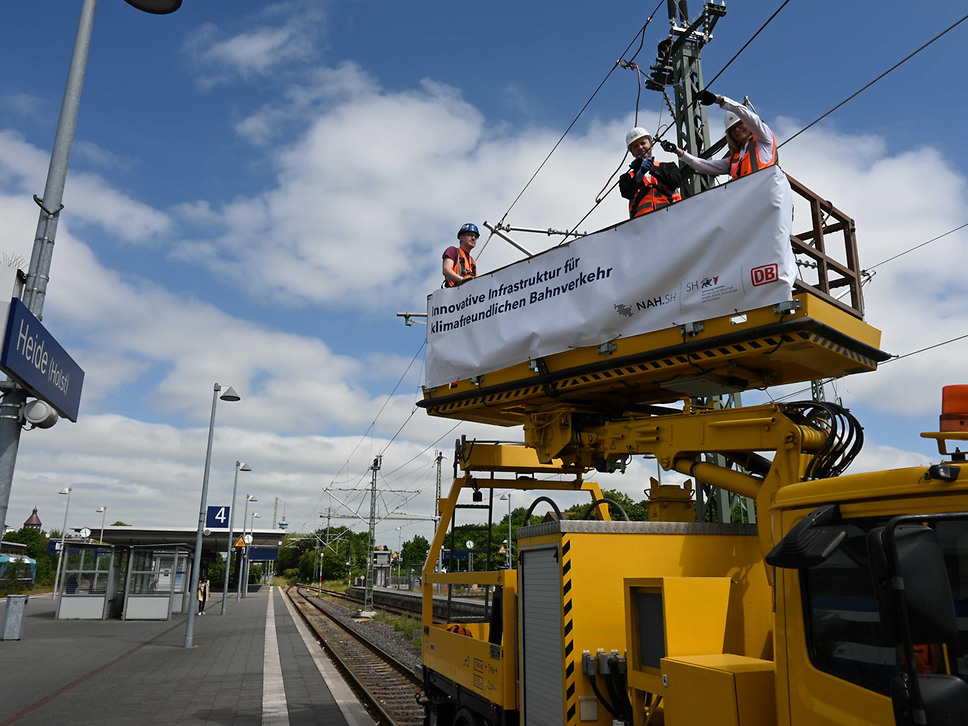
Pilot project in Annaberg-Buchholz
Together with partners from industry and research, DB Energie has built an innovative and mobile charging infrastructure for battery trains in Annaberg-Buchholz, Saxony. The facility was tested under real operating conditions until the end of 2025.
Battery train fleet Replacing diesel units
Starting in spring 2026, DB Regio will deploy a fleet of battery trains for the first time in regular service on the rail network in the Palatinate region. Thanks to the accumulators and the use of renewable power, several million liters of fuel can be saved annually compared with the current diesel trains in the western and southern Palatinate.

